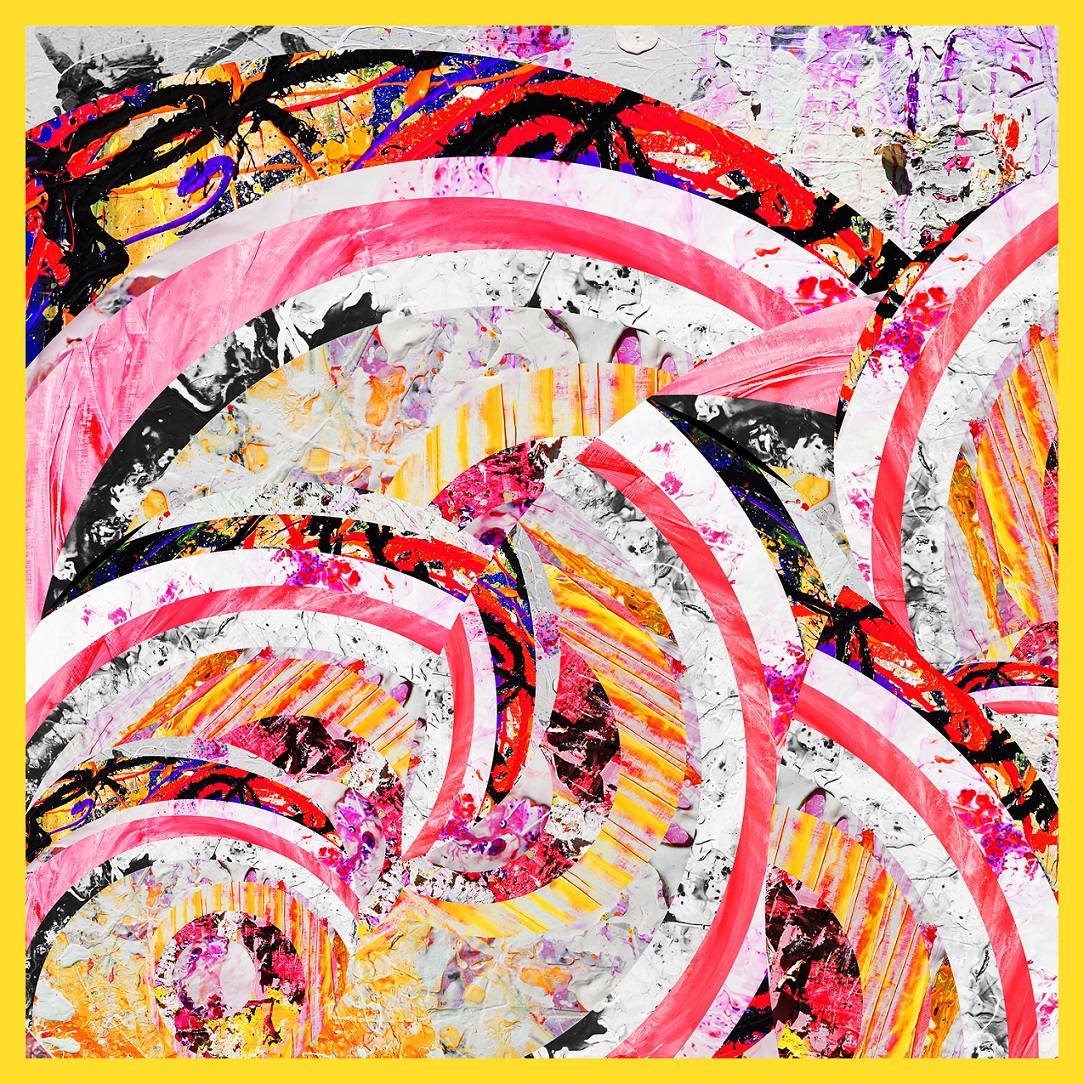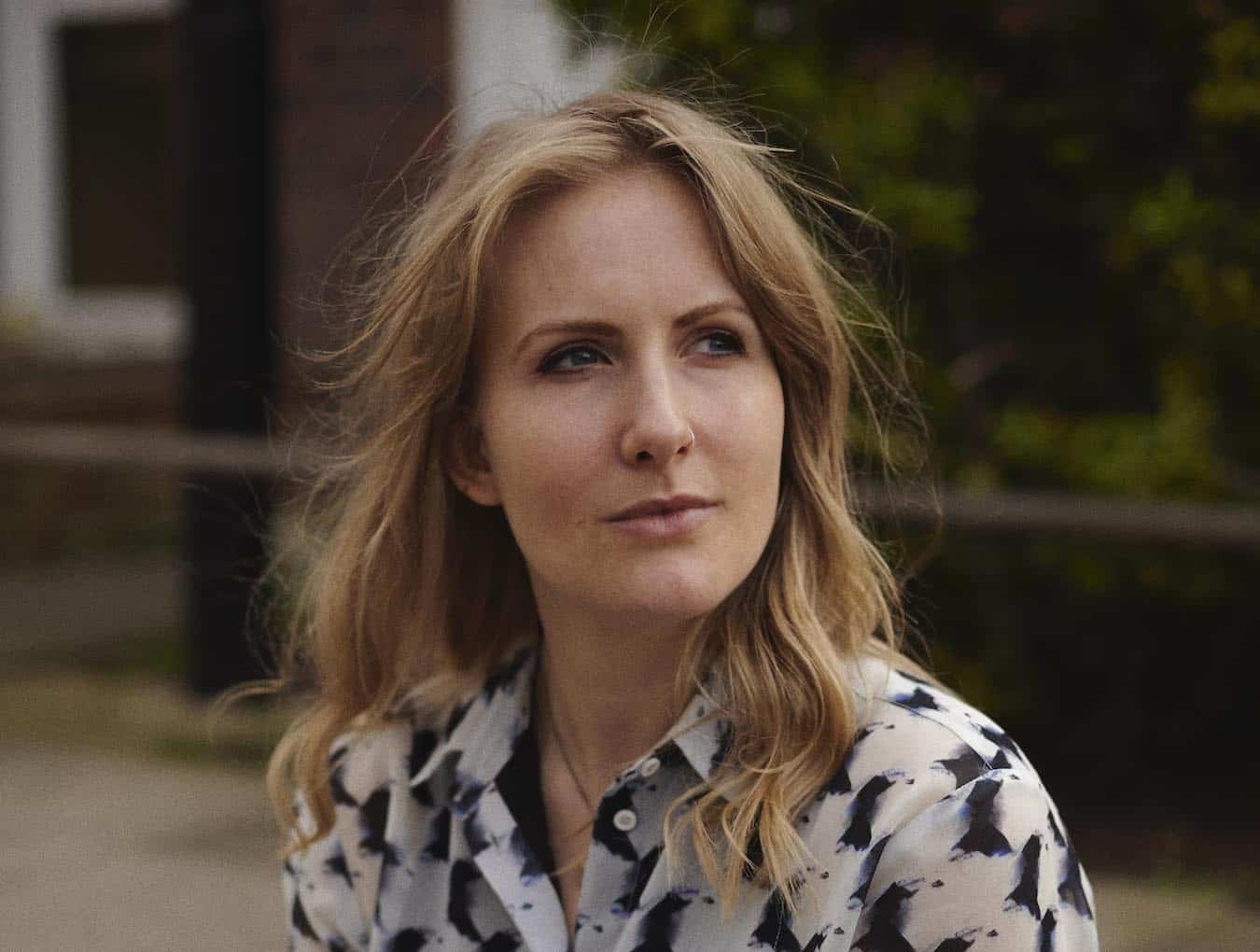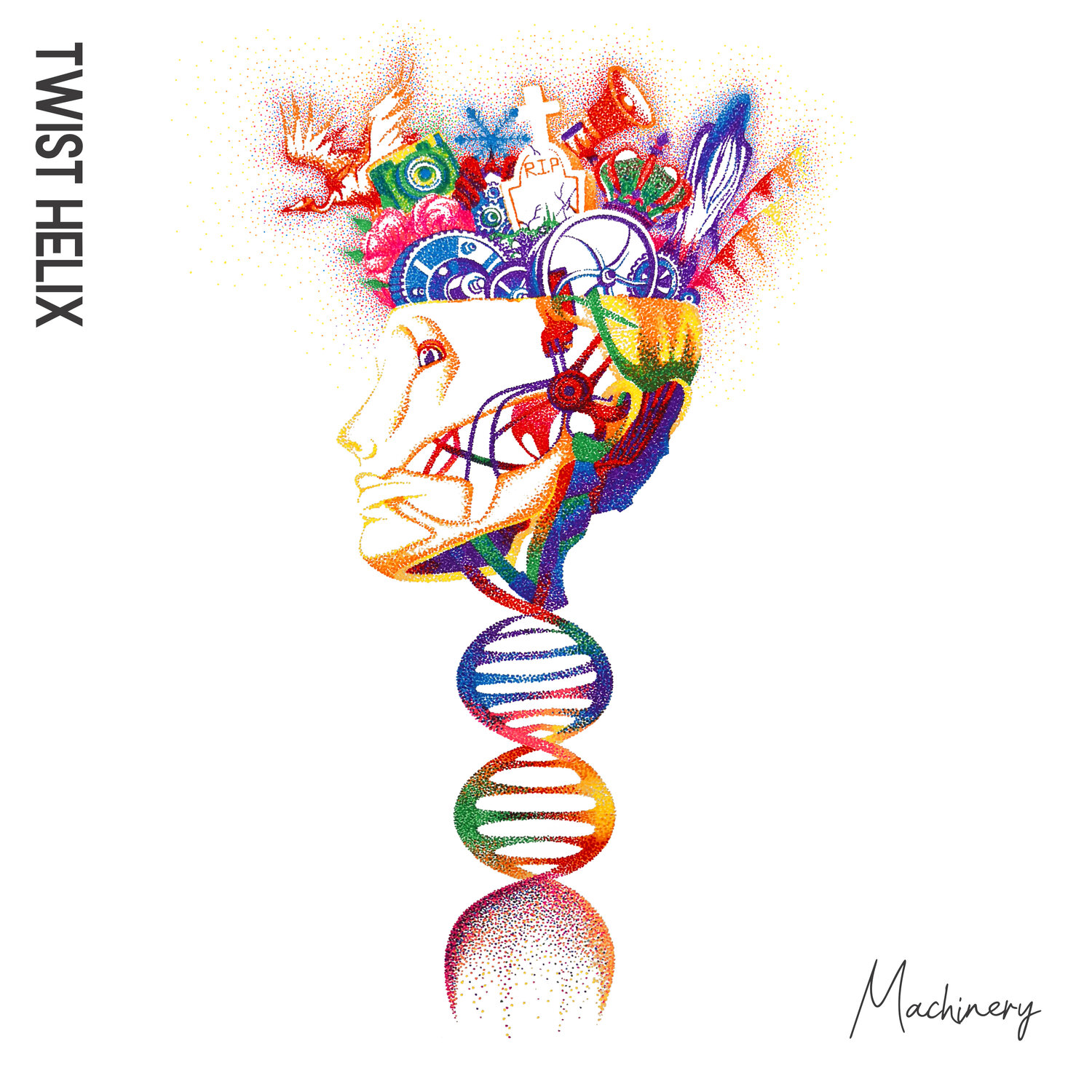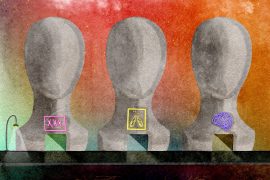Electronic producer Gold Panda’s first full-length in over half a decade, ‘The Work’ holds space for introspection through larger themes of mental health while offering listeners the opportunity to move their bodies to his trademarked skittering beats.
Stream: ‘The Work’ – Gold Panda
The passage of time is, of course, something that I find myself thinking about quite often, but, the way our lives change—like big, noticeable changes—within that passage of time is something that I, perhaps, do not find myself really ruminating, or focusing on as often.
Though perhaps I should.
We are, inherently, both the same and not the same people we were five, or even six years ago.
And this was a part of a recent conversation with a friend about time, and how different our lives may or may not be as the years continue to pass. My friend and I—our respective lives are much different now than they were five years ago—you change jobs (sometimes more than once), you inherit more responsibilities at the job you have held for years, you suffer a sudden loss, you open up your home and heart to a different companion animal, you buy a house, you get married, you have a child—but at what point does life, or the changes within our lives, not so much begin to slow down, but when do the changes become less noticeable—to others, but also to yourself?
And is that what we want?
And what does that mean for our lives?
And I am thinking about this, because the last time Derwin Dicker, the man who produces subdued but often dazzling electronic music under the moniker Gold Panda, released a full-length album, it was the spring of 2016.
At that time, I was still writing for a newspaper—a job I took in the autumn of 2014; a job I would, soon after sitting down in the newsroom, regret my decision to take, and often found myself literally drowning in stress. A job that I would thankfully depart two years after I was hired, and three months after the release of Dicker’s album, Good Luck and Do Your Best.
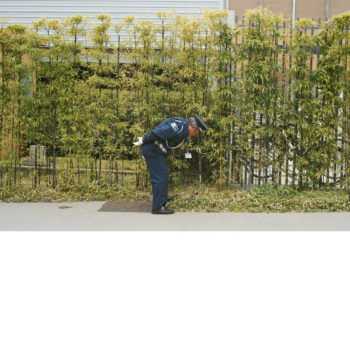
My wife and I, at the time, still lived with a companion rabbit, who would, unfortunately, pass away roughly two years later. We then, for a while, were foster failures to a special needs cat.
We now live with a dog. And only a dog.
We are, inherently, both the same and not the same people we were five, or even six years ago.
And the reason that this conversation with my friend, and the ways she and I have both respectively changed in our lives, has been on my mind so much is that I am thinking about the way I measure time—what I use as bookmarks for different periods of my life.
More often than not, I use music—specifically the release of an album, and regardless of how large of an impact that album may or may not have had on my life, when the album passes through my mind, or I pull it off the shelf and listen after a long period of dormancy for it, I think about where I was, or who I was when it was released.
I am thinking about where and who I was when I first heard Good Luck and Do Your Best, and where, and who, I am now as Dicker is releasing his follow-up full-length, The Work.
And I am thinking of the changes that have occurred in the space between.

Writing about music is not easy — I never claimed that it was.
And maybe for some who find themselves in this same line of work, either professionally or as some kind of hobby, it is perhaps not ‘easy’ exactly, but is possibly less laborious than I have wound up making it out to be. And what I have found, at least within the last three years, is that, yes, writing about music is not easy, but writing about instrumental, experimental, or ambient music is even harder, simply because of how I write.
It is one thing to unpack an album the way I do, or have been doing in recent years, with personal anecdotes that, even if they do not seem like they belong, I continue to shoehorn into a piece, and the inevitable dissection of an album’s instrumentation, then its lyricism. But if there are no lyrics to analyze, even with as evocative, or compelling as instrumental or experimental music in question is capable of being in the hands of the right performer, it becomes a challenge to accurately articulate that—to try and find the correct words to describe the wordless.
The Work’s predecessor, Good Luck and Do Your Best, was primarily inspired by Dicker’s travels to Japan with a photographer friend—the sonic influence of the culture, and notion of traveling itself, ran throughout the record, but on The Work, there is much less of an overall concept (embracing of and immersion in a culture, for example) tying this collection together. However, across the span of the six years between these two albums, there are familiar echoes of Good Luck, or at least production elements employed on that album, present within the fabric of The Work.
And after spending enough time with this record, what I have come to understand is the most accurate way to describe this album, and the songs found within it, and even perhaps Dicker’s work as Gold Panda as a whole, is that The Work is representative of a convergence of the jubilant and the bittersweet, with the two extremes rarely if ever intersecting, but if they are to, and when they do, Dicker can create real moments of wonder.
It would make sense, I suppose, that some of The Work’s more accessible and much more enthusiastic pieces were among the songs released as advance singles — the excellently titled “I’ve Felt Better (Than I Do Now)” revealed upon the announcement that the album was imminent, then later joined by the jittery “The Corner,” both of which lean more into the jubilant, celebratory extremes that Dicker composes and creates within.
I didn’t make reference to it when I wrote about Good Luck and Do Your Best in 2016 — my review, less than 350 words long, and probably written very hastily on a Sunday afternoon while covering a slow, quiet weekend shift at the bookstore (a second job for around three years) is funny, and kind of startling to revisit now, six years later, to see how I was writing in the past, and then try to trace the path to how I am writing now — but what I did not draw a connection to, and perhaps should have, and did certainly while listening to The Work is how reminiscent this album can be, at times, of both Endtroducing-era DJ Shadow as well as DJ Rashad’s Double Cup, just in terms of the ability to tightly and intelligently weave samples and sounds together to create something frenetic, yes, but that you, often, feel compelled to move your body when you hear it.
Partially inspired by a re-watch of The Wire, where members of the cast often talk about their respective ‘corners’ in the neighborhoods of West Baltimore, the disembodied vocal sample in “The Corner,” as well as the main melody that is stretched and pulled throughout the song, occasionally shifting down in tone, are both pulled from “Lydia,” a 1979 song from the marginally obscure singer and songwriter Dean Friedman.
“The Corner” is one of the songs where Dicker successfully finds the place where the jubilant and the bittersweet, or somber, converge—the chopped-to-bits vocal sample of Friedman, repeating the line, “More often than not I’m down here on the corner,” is hypnotic in the way its repeated, creating something like a mantra, but there is something that is a little heartbreaking in Friedman’s voice—something fragile, that you can hear come through even when it is obliterated from its original context and placed here. The jubilance, or the enthusiasm in “The Corner,” comes from the skittering, sometimes clattering, and unpredictable beat underneath it all.
And it is the melody, though, just a snip pulled from “Lydia” that Dicker manages to bend to his will within the song, that creates the space within the convergence—it is triumphant sounding certainly, but when he shifts it down just slightly within “The Corner”’s sequencing, just for a brief moment, it becomes surprisingly melancholic, creating a slight unease that is never really resolved even as the rest of the piece continues to spiral and swirl around.
In perhaps contrast to that collision of something somber and something joyous, later within The Work’s first side, “I’ve Felt Better (Than I Do Now)” is among the tunes that sees Dicker leaning further into an unbridled elation in terms of the way the rhythm is constructed, as well as the tonality of the song itself. Throughout The Work, and even on Good Luck and Do Your Best, one of the trademarks of the Gold Panda sound is the employment of a kind of nervy, jittery percussive element—something that can, at times, make a lot of the songs sound very similar, but that sound can lend itself to the sense of immediacy for movement, which is what winds up happening here.
The groove of “I’ve Felt Better” is undeniable — perhaps a bit of self-aware winking to the listener in a song with a surprisingly personal and honest title, juxtaposed against a dizzying rhythm that compels you to flail along wildly and become absolutely lost in it. The piece is based around a kind of give and take — a swaying, whooshing sensation that is both articulated through sounds within the song, and also its ability to create that kind of tangible feeling within the listener. Within that feeling of being pushed and pulled around through the energy of “I’ve Felt Better,” Dicker drops in cut-up and distorted vocal samples—too deconstructed to get a feeling where they may be from, bringing to mind the sampling interpolation work of very early Burial, but far less gloomy and downcast, and just simply much more fun to hear.
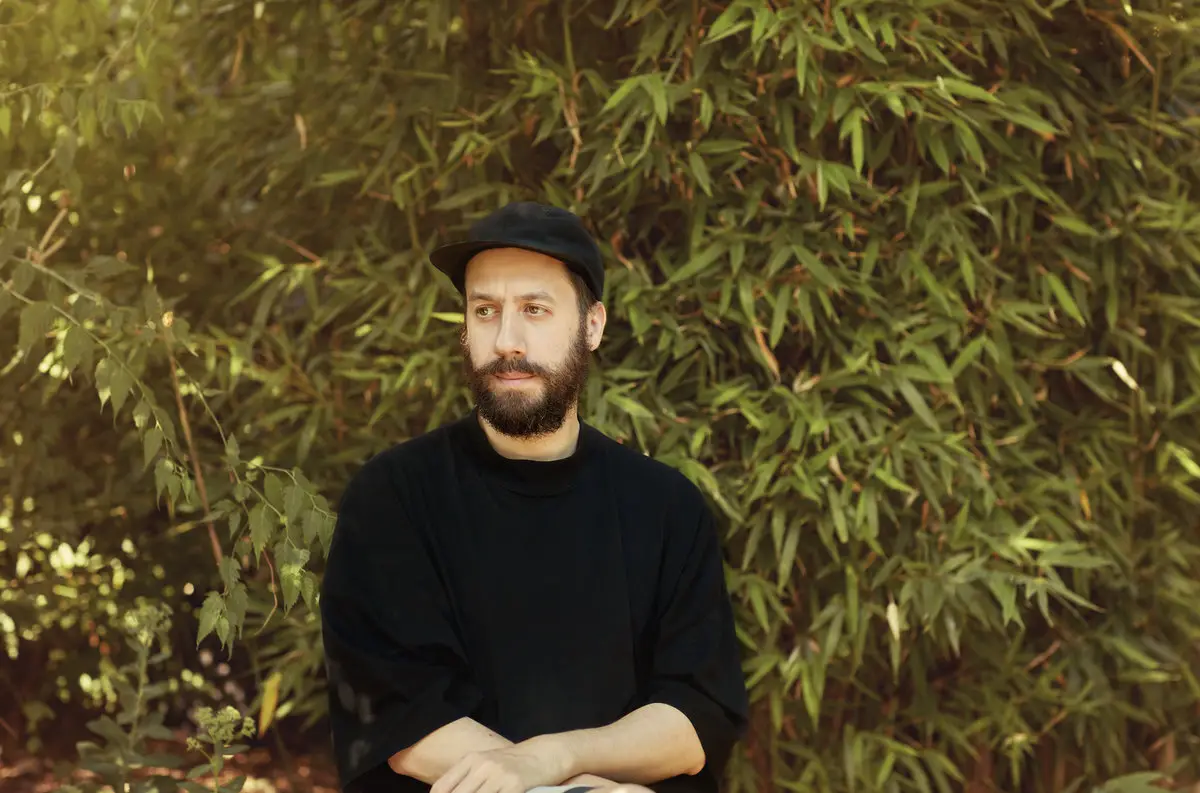
And it is, perhaps, the songs on The Work that lean a little further into the somber, or more introspective sounding, that aren’t specifically more successful in their composition, but rather, they are the pieces that resonated the most with me as a listener—the same way the more melancholic, less frenetic tunes from Good Luck are still the ones that I return to the most, or at least pass through my mind often.
Sequenced as the fourth track, in between two of the more glistening, more energetic moments on The Work, “The Want” is one of the moments on the album where it becomes more noticeable that Dicker is favoriting a similar kind of percussive rhythm and sound on a majority of these songs, and I hesitate t refer to it as the ‘fatal flaw’ here, but it doesn’t help create a sense of dynamism moving from song to song, and things can, and often will, begin to sound the same after a point. However, “The Want” arrives early enough in the album that it is the first place where more somber, or inward-sounding tones are introduced—partially in the pensive, muffled-sounding sample that spirals around as an introduction to the song, but certainly in the warmth of the chord progression that works itself down the keys around 40 or so seconds in.
It is, though, the song “New Days,” placed at The Work’s halfway point, that is the finest moment on the record, and sees Dicker working at his absolute peak in terms of composing something both melancholic and devastating in its restrained beauty.
Set, once again, to a skittering, clattering beat, though a little more conservative here in just how skittering and how clattering it comes across, it is the way that Dicker presents the main piano melody in the song that really makes it as gorgeous, somber, and borderline haunting as it is. On the verge of sounding like it is playing in reverse, over the top of crackle and static, he stretches and sustains the notes from the piano sample, holding them out for what seems like much longer than they could, or should, be held in such a way before letting go of the grip, and allowing the progression of the sample to continue tumbling into its place alongside the jittering beat.
The Work spans a concise 11 tracks, and clocks in at around 40 minutes — and with the way the album is structured, Dicker has stacked all of the more enthusiastic tracks within its first half.
The momentum doesn’t exactly take a nosedive on the second side, but things become a lot more pensive and restrained in terms of composition.
But even as some of the nervous tension and energy of the album subsides, there are still moments, or elements, from the second half that are compelling—“I Spiral,” the shortest track on the album, second only to the introductory piece that opens things up, also perhaps has the most going on within it in terms of the collision of layers—begins with a wonky, off-kilter kind of sound that bounces around, followed by a disorienting and arrhythmic beat that is difficult to follow. As it continues to spiral (the title is very fitting), larger, slightly more held together synthesizer chords form over the top of it all as a means of trying to make a connection, but the piece remains tornadic it how relentlessly jarring it is right until the very end.
Among the things that had stuck with me about Good Luck and Do Your Best is the album’s closing track — the optimistically titled “Your Good Times Are Just Beginning,” which, after getting over its initial and somewhat repetitive sample sequencing, opens up to something surpassingly glorious and beautiful—truly, the convergence of things both jubilant and somber, as the drums kick in a little harder, an open chord piano melody folds itself in, and a horn accompaniment floats through. There is a sense of melancholy, yes, but there is also something undeniably triumphant about it all—the kind of piece that was, very clearly, assembled with the notion of the ‘closing track’ in mind.
It comes as a bit of a surprise then that The Work winds itself down somewhat unceremoniously with the extremely reserved “Joni’s Room.” It is perhaps the most pensive of the songs included within this album; there is something fragile and beautiful about the main melody, or synthesizer progression that runs throughout the piece—slow-moving, and lower in tone; however, the mood is unfortunately disrupted through the appearance of an erratic, more dissonant tone that continues to ripple through and serves as a real distraction.
For as dazzling and impressive as portions of The Work are capable of being, the album as a whole can be, at times, frustrating when it begins to lose a little of its direction in the second half — though, that loss of focus is part of the album’s larger conceit. For as much of a challenge as it might present for someone like myself to overanalyze an album comprised of wordless music, it is rather apparent from the songs themselves, as well as Dicker spelling it out in the press materials for The Work, that it’s his most personal and introspective release.
“I always wanted to do the ‘cool’ music,” he quips. “But I can only make the music I make, I suppose,” adding that he has become more comfortable with his compositions as Gold Panda now than in the past.
And within the last two and a half years, I, like Dicker, have found myself thinking about the idea of “the work,” and what it means about personal improvement. “The work,” at least in the circles of mental health, is what you say you are “doing,” or “putting in,” and the implication is that your efforts will not lead you to be “cured” of anything — in Dicker’s case, he has put in “the work” over the last six years and, through those efforts, he has gotten himself to a place where he feels a lot better than he had in the past.
In other cases, you can put in the work as a means of simply managing—the hope, however fleeting, that you may, one day, feel a little better, but you spend a bulk of your time more or less treading water, navigating ways not to find yourself feeling any worse.
For Dicker, arriving at the place where he needed to begin putting in, or doing, “the work,” was not necessarily a moment when he personally hit rock bottom, but rather a moment of reassessment and a shift in priorities.
He is a little cavalier about it in the press release for The Work, but Dicker mentions an experience while staying in Japan, as well as his dependence on alcohol, leading him to a realization.
“I was… in a really horrible hotel,” he recalls. “It only had one window — the window was in the bathroom. When I came out of the hotel room, I was basically in a massive tower block 24 hours up. There’s all this mesh netting, so people don’t jump off. It was so depressing, and I thought, ‘Fuck it. I could still jump.’”
Dicker confesses that he was hungover in this instance, and explains that while he “loved” drinking, that was the last time he allegedly was drunk. “I can’t deal with the hangovers,” he continued. “The regret, the anxiety, and depression.”
“The Work” that Dicker has been putting into himself over the last six years was partially from becoming a father, and as overused of a concept and expression as it might be, the “self-care” and efforts within himself to see where he was going wrong, as he put it, and why he might be depressed.

As problematic as its star, Bill Murray, has more than likely always been, and as troubling as its depiction of mental illness is when viewed through a contemporary lens, there is this line from the movie What About Bob? that I often think about — within the scene, the titular Bob, played by Murray, is pleading with his therapist, portrayed by Richard Dreyfuss, and wines, “I’m baby stepping! I’m doing the work! I’m baby stepping! I’m not a slacker!”
I’m doing the work.
“The Work.”
We are, inherently, both the same and not the same people we were five, or even six years ago.
The passage of time is, of course, something I find myself thinking about quite often, but the way our lives change—big, noticeable changes, yes, but even internalized, smaller changes, within that passage of time are things that I, perhaps, do not find myself ruminating on, or focusing on as often.
I’m doing the work.
I think about my own work—“The Work,” or the effort, or whatever you want to call it, that I have been putting into myself for roughly three years now—when I ghosted my longtime therapist, who was no longer helpful and found a new one who has both been encouraging but also challenging when it comes to when, where, and how to put in “The Work.”
And when I think about that, yes, it is a moment to reflect on where I was, and how far I have come, but it is also an extremely humbling moment to understand how much further there is to go.
How much more effort there is to put in. How much more of “The Work” still needs to be done.
Dicker’s efforts at “The Work,” and the time and energy he’s put into mental health, and trying to feel better is interesting—genuinely interesting—to me, as a severely depressed individual,. In arriving at this place with his lived experiences, and all of the effort he has put in over the last six years serving as the inspiration for the way The Work sounds, even when it falters, and loses momentum and enthusiasm, as a whole, it makes sense.
The Work makes the most sense in those moments where there is the convergence of the somber and the jubilant—extremities that are not exactly fighting for control, but are creating something both beautiful and disorienting in the space where they meet.
— —
:: stream/purchase The Work here ::
Stream: ‘The Work’ – Gold Panda
— — — —

Connect to Gold Panda on
Facebook, Twitter, Instagram
Discover new music on Atwood Magazine
? © Laura Lewis
:: Stream Gold Panda ::



